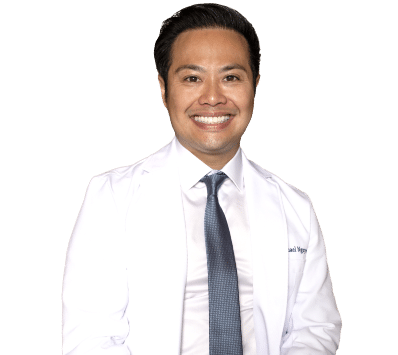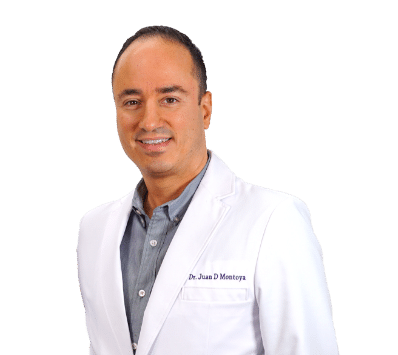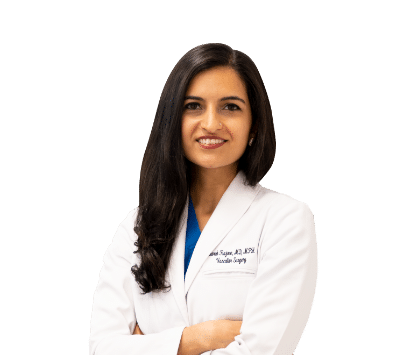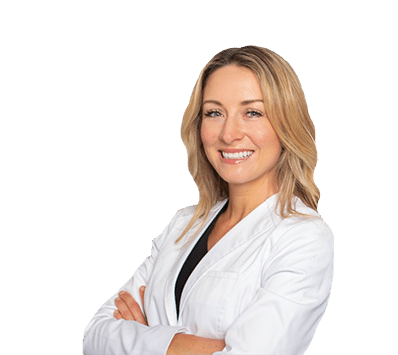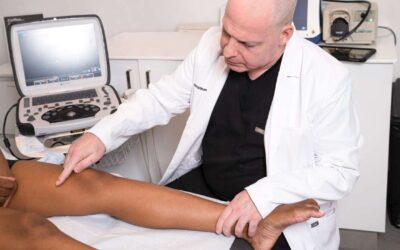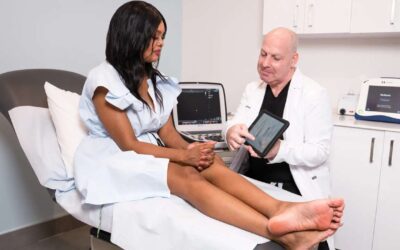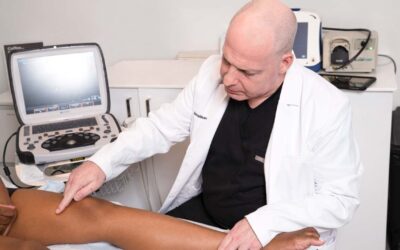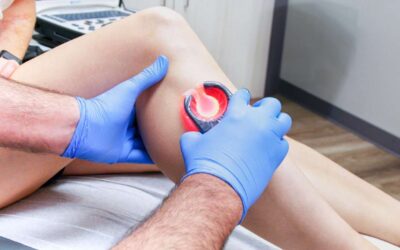Are Varicose Veins Genetic? And Other Risk Factors for Varicose Veins
Genes: the #1 risk factor for varicose veins and chronic venous insufficiency
An estimated 20 percent of the population in the United States has varicose veins, which are dilated, enlarged veins most commonly seen on the legs. They occur when the valves in the veins that are responsible for circulating blood back to the heart become weakened or damaged. This results in blood pooling in the veins and causing them to swell.
Varicose veins are a cosmetic concern for many people, but they’re usually indicative of a more serious circulatory problem. Chronic venous insufficiency (CVI) is a condition in which the veins are unable to properly pump blood back to the heart, and it’s directly responsible for most vein problems, including spider veins and varicose veins.
There are many factors that contribute to the development of varicose veins and CVI, but the most important is genetics. Up to 80 percent of people with varicose veins have a family history of the condition. If both your parents have a history of vein problems, there’s a 90 percent chance that you’ll eventually have vein disease.
Several genes have been linked to an increased risk of developing varicose veins and CVI. One of the most well-studied is the Factor V Leiden mutation. This mutation is found in about 5 percent of the general population, but it is present in up to 35 percent of people with varicose veins.
Other genes that have been linked to an increased risk of varicose veins and CVI include those involved in the regulation of blood clotting, such as the prothrombin G20210A mutation and those involved in the structure of vessel walls, such as the Human Duchess2 gene.
Genetics is the most important risk factor for vein disease, so if you have a family history of varicose veins or CVI, you may be at an increased risk. If you are concerned about your risk, talk to your vein doctor about ways to prevent or manage these conditions.
Our medical center for vein treatment in New York is led by board-certified vein doctors who can examine your condition, discuss your symptoms, and recommend solutions to minimize your risk of vein problems. You can find our vein doctors in Midtown Manhattan, a short walk from Bryant Park. Please schedule an appointment for vein treatment in New York.
What are the other risk factors for varicose veins?
While genetics is the most important risk factor for varicose veins and CVI, there are other factors that can contribute to the development of these conditions. These include age, pregnancy, obesity, and prolonged standing or sitting.
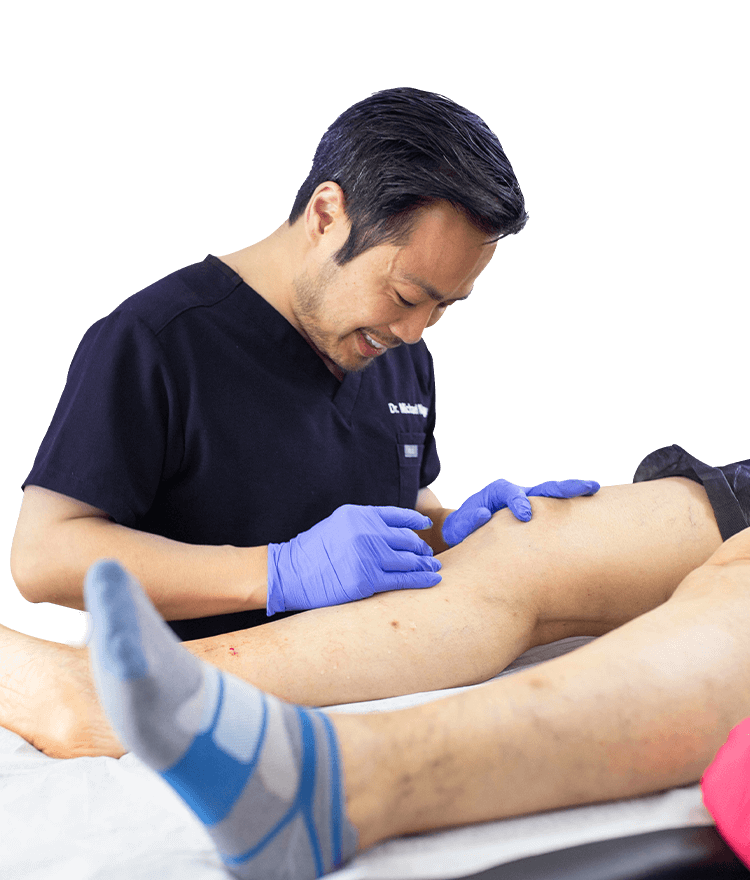
Sex
Women are more likely to develop varicose veins than men due to the hormonal changes that occur during pregnancy and menopause. Furthermore, estrogen and progesterone hormones also weaken the vein valves, and women have more of these hormones than men.
Pregnancy
The increased weight and pressure on the pelvis and abdomen during pregnancy can cause the veins in the legs to enlarge and bulge. Furthermore, during pregnancy, women also produce more estrogen and progesterone, which can weaken the vein valves. If you have dilated veins, engorged veins, or spider veins in pregnancy, you should contact your vein doctor.
Age
The risk of developing varicose veins increases with age, as the valves in the veins become weaker and less able to pump blood efficiently.
Obesity
Being overweight or obese puts extra strain on the veins in the legs, which can lead to varicose veins. Obesity isn’t the primary risk factor for varicose veins, but a healthy lifestyle can minimize the risk of spider veins and varicose veins.
Occupation
People who have jobs that require them to stand for long periods of time are at a higher risk of developing varicose veins, as the blood can pool in the veins and cause them to enlarge. If your job involves long periods of standing or sitting, take short breaks to move around. Jobs with the highest risk of vein disease include driving, nursing, teaching, and desk jobs.
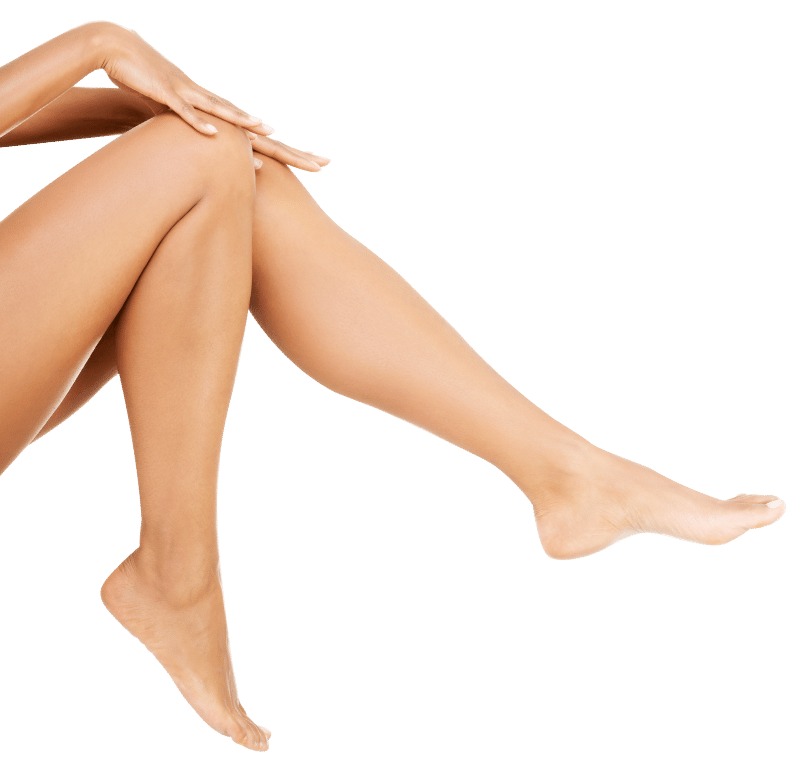
BOOK AN APPOINTMENT
Experiencing symptoms of vein disease? Book an appointment with one of the our Vein Specialists in New York.
What causes varicose veins?
The root cause of varicose veins is chronic venous insufficiency (CVI). CVI occurs when the valves in your veins stop working properly. Normally, these valves keep blood flowing in the right direction. When they don’t work right, blood can leak back into the veins and cause them to become dilated or enlarged. Over time, the dilated veins can become more and more twisted and can eventually form what are known as inner varicose veins. This is a serious condition that can lead to ulcers and other health problems.
Why do you get leg veins during pregnancy?
There are many changes that happen to a woman’s body during pregnancy, and one of these is the development of spider veins, engorged veins, and dilated veins. While some women may only experience a few dilated veins, others may find that their legs are covered in them. So why do pregnant women get dilated veins?
There are two main reasons why leg veins are more common during pregnancy. The first reason is that the extra weight that a woman is carrying can put a strain on her veins, causing them to become more visible. The second reason is that during pregnancy, the hormone progesterone relaxes the walls of the veins, leading to a higher risk of vein disease and varicose veins.
If you have a higher risk of spider veins, varicose veins, and dilated veins, you can take the following measures to reduce your risk:
- Wear compression stockings
- Walk frequently
- Engage in cardiovascular exercises, such as running and swimming
- Don’t sit or stand still for long periods
- Elevate your legs while sitting down
- Contact a board-certified vein doctor for an evaluation
MEET OUR NEW YORK
VEIN SPECIALISTS
Dr.MICHAEL NGUYEN
Veins Specialist NYC
He leads the team of vein doctors offering the highest level of care at our Spider and Varicose Vein Treatment Center NYC.
HARVARD MEDICAL SCHOOL
Dr. JUAN D. MONTOYA
Veins Specialists NYC
Highly sought after for his expertise and excellent outcomes in Vein Treatments in Manhattan.
YALE MEDICAL SCHOOL
Dr. SAREH RAJAEE
Veins Specialists NYC
She has extensive experience with vein performing procedures based on New York City.
HARVARD MEDICAL SCHOOL
Learn more about our clinics, doctors and procedures!

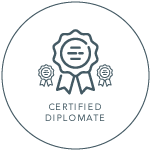

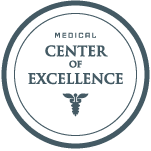



Contact us
Call us
Speak instantly with one of our team members; they will answer any questions you may have regarding insurance coverage, booking an appointment and our vein treatment locations. (332) 263-9984
Book online
Visit our Book Appointment page and instantly request an appointment at the New York vein center near you. We offer Free Insurance Verification before your appointment.
Get directions
Learn how to easily get to the New York vein center.
FEATURED POSTS BY VEIN DOCTORS
Best Treatment for Spider Veins in Upper East Side, NY
Best Treatment for Spider Veins in Upper East Side, NYYou may have noticed clusters of thin, reddish-purple veins spreading across your legs, ankles, or face. At first, they might have seemed like a minor cosmetic issue—a few visible veins that didn’t cause much...
Treat Venous Reflux at Upper East Side’s New Vein Clinic
Treat Venous Reflux at Upper East Side's New Vein ClinicYou may have noticed heaviness, aching, or swelling in your legs, especially after standing for long periods. Perhaps your legs feel restless at night, or you see bulging veins beneath the skin. These could be...
Sclerotherapy for Varicose Veins in Upper East, New York
Sclerotherapy for Varicose Veins in Upper East, New YorkHave you ever noticed clusters of thin, web-like veins spreading across your legs or experienced persistent aching, heaviness, or swelling? These symptoms might seem minor initially, but they could indicate...
Best Treatment Options for Spider Veins in Bronx, New York
Best Treatment Options for Spider Veins in Bronx, New YorkYou’re getting ready for an outing, but you feel self-conscious about the thin, web-like veins visible on your legs. You wonder if they’re purely cosmetic or indicative of a deeper issue. Perhaps you’ve...
